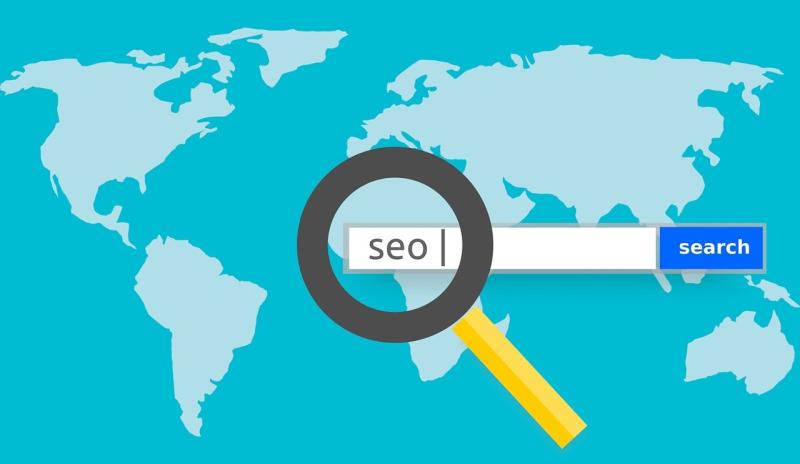SEO Roadmaps: Guiding Your Travel Website to Organic Traffic Success

In the competitive world of travel, having a visually stunning and informative website is only half the battle. The real challenge lies in ensuring that travelers can actually find your website. That’s where travel SEO comes into play. Search Engine Optimization (SEO) is the key to boosting your website’s visibility on search engines, driving organic traffic, and ultimately turning those visitors into paying customers.
Creating an effective SEO strategy for your travel website is like following a roadmap—it requires planning, direction, and a focus on long-term results. In this blog, we’ll guide you through the steps to create a successful SEO roadmap for your travel website, helping you increase your visibility, attract the right audience, and grow your business.
1. Understanding the Importance of Travel SEO
The travel industry is incredibly competitive, with thousands of websites competing for attention. Most travelers begin their journey with a Google search, whether they’re looking for “best beach resorts in Thailand” or “affordable tours in Europe.” If your travel website isn’t optimized for search engines, it’s likely to be buried under pages of results, missing out on potential traffic and bookings.
Travel SEO helps your website rank higher in search results, ensuring that your site appears when travelers search for relevant keywords. It’s not just about increasing traffic; it’s about attracting the right kind of traffic—people who are actively searching for the destinations, services, or deals you offer. With a solid SEO strategy in place, your travel website can become a top destination for travelers looking for inspiration, bookings, and travel advice.
2. Conduct Thorough Keyword Research
The foundation of any successful SEO strategy is keyword research. Keywords are the search terms that travelers use when looking for travel-related information or services online. By identifying the right keywords, you can create content that directly answers your audience’s questions and ranks higher in search engine results.
Use tools like Google Keyword Planner, SEMrush, or Ahrefs to find relevant keywords for your travel niche. Focus on a mix of broad and long-tail keywords. For example, broad keywords like “vacation deals” or “best travel destinations” can attract a large audience, but they’re often highly competitive. Long-tail keywords, such as “eco-friendly hotels in Costa Rica” or “family-friendly vacation packages in Europe,” are more specific and can help you target a niche audience with less competition.
Once you’ve identified your target keywords, incorporate them naturally into your website’s content, including blog posts, meta descriptions, headers, and image alt text. This will help search engines understand the relevance of your content and improve your rankings for those search terms.
3. Optimize Your Travel Website for Mobile and Speed
Mobile optimization is critical for any travel website. More and more travelers use their smartphones and tablets to search for destinations, book accommodations, and plan trips. In fact, Google now uses mobile-first indexing, meaning that it primarily looks at the mobile version of your site when determining rankings.
To ensure that your travel website ranks well on search engines, make sure it’s fully optimized for mobile devices. This means having a responsive design that adjusts to different screen sizes and provides a seamless user experience. Additionally, focus on improving your site’s speed. A slow-loading website can frustrate users and lead to higher bounce rates, which negatively impact your SEO performance.
Use tools like Google PageSpeed Insights to evaluate your site’s speed and make improvements where needed. Compress images, reduce unnecessary code, and enable browser caching to ensure fast load times. A fast, mobile-optimized website not only improves user experience but also boosts your search engine rankings, making it more likely that travelers will stay on your site longer and convert.
4. Create Engaging, SEO-Optimized Content
Content is one of the most important elements of your SEO strategy. Travelers are constantly searching for destination guides, travel tips, and booking information. By creating high-quality, engaging, and SEO-optimized content, you can not only improve your search rankings but also keep visitors on your site longer, increasing the chances of converting them into customers.
Here are some types of content that work well for travel websites:
Destination Guides: Offer detailed guides to popular or emerging travel destinations. For example, “Top 10 Things to Do in Tokyo” or “A Complete Guide to Exploring Bali” can attract users looking for destination-specific information.
Travel Tips and Advice: Provide practical travel tips, such as “How to Pack for a Two-Week European Vacation” or “Budget Travel Tips for Families.” These posts help answer common questions and rank well for informational search queries.
Sample Itineraries: Offer sample itineraries that help users plan their trips. For instance, “7 Days in Italy: A Perfect Travel Itinerary” or “A Weekend in Paris: What to See and Do” can draw in travelers who are in the early stages of trip planning.
Make sure your content is optimized for SEO by including relevant keywords naturally throughout the text. Avoid keyword stuffing, as this can hurt your rankings. Instead, focus on creating content that provides real value to your audience while also helping search engines understand what your page is about.
5. Build High-Quality Backlinks
Backlinks are a crucial component of SEO. A backlink is when another website links to yours, and it signals to search engines that your website is trustworthy and authoritative. The more high-quality backlinks you have, the higher your travel website will rank in search results.
To build backlinks, focus on creating shareable, valuable content that other websites will want to link to. This might include in-depth destination guides, expert travel tips, or unique itineraries. You can also reach out to travel bloggers, influencers, and industry publications for guest blogging opportunities or collaboration. By earning high-quality backlinks, you’ll improve your website’s domain authority, which will lead to better rankings and more organic traffic.
6. Leverage Local SEO for Targeted Traffic
If your travel business focuses on specific destinations or regions, local SEO can be a powerful tool for attracting targeted traffic. Many travelers search for location-specific services, such as “best travel agents in New York” or “guided tours in Paris.” Optimizing your website for local SEO ensures that you capture these types of searches.
Start by creating or claiming your Google My Business profile. Ensure that your business information—such as name, address, and phone number—is accurate and consistent across all platforms. Use location-specific keywords throughout your content and encourage satisfied customers to leave positive reviews, as reviews can significantly improve your local search rankings.
Conclusion
Mastering travel SEO is essential for driving organic traffic and growing your travel website. By following a clear SEO roadmap—focusing on keyword research, mobile optimization, content creation, backlink building, and local SEO—you can boost your site’s visibility, attract more visitors, and convert them into loyal customers. With the right strategy in place, your travel website will thrive in the competitive online space, ensuring long-term success.









Comments